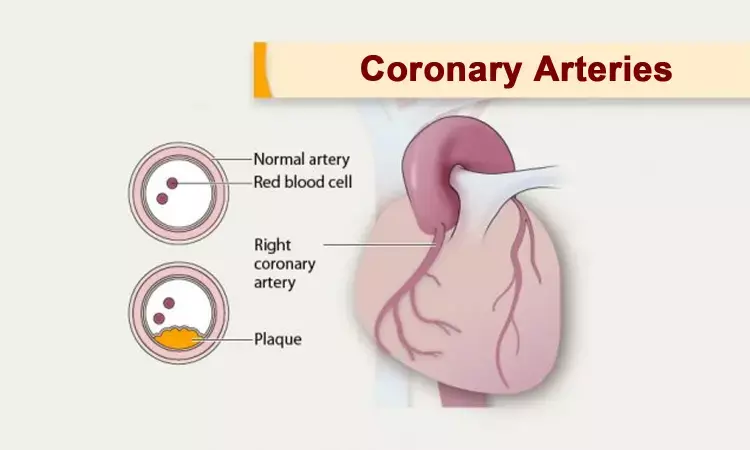- Home
- Medical news & Guidelines
- Anesthesiology
- Cardiology and CTVS
- Critical Care
- Dentistry
- Dermatology
- Diabetes and Endocrinology
- ENT
- Gastroenterology
- Medicine
- Nephrology
- Neurology
- Obstretics-Gynaecology
- Oncology
- Ophthalmology
- Orthopaedics
- Pediatrics-Neonatology
- Psychiatry
- Pulmonology
- Radiology
- Surgery
- Urology
- Laboratory Medicine
- Diet
- Nursing
- Paramedical
- Physiotherapy
- Health news
- Fact Check
- Bone Health Fact Check
- Brain Health Fact Check
- Cancer Related Fact Check
- Child Care Fact Check
- Dental and oral health fact check
- Diabetes and metabolic health fact check
- Diet and Nutrition Fact Check
- Eye and ENT Care Fact Check
- Fitness fact check
- Gut health fact check
- Heart health fact check
- Kidney health fact check
- Medical education fact check
- Men's health fact check
- Respiratory fact check
- Skin and hair care fact check
- Vaccine and Immunization fact check
- Women's health fact check
- AYUSH
- State News
- Andaman and Nicobar Islands
- Andhra Pradesh
- Arunachal Pradesh
- Assam
- Bihar
- Chandigarh
- Chattisgarh
- Dadra and Nagar Haveli
- Daman and Diu
- Delhi
- Goa
- Gujarat
- Haryana
- Himachal Pradesh
- Jammu & Kashmir
- Jharkhand
- Karnataka
- Kerala
- Ladakh
- Lakshadweep
- Madhya Pradesh
- Maharashtra
- Manipur
- Meghalaya
- Mizoram
- Nagaland
- Odisha
- Puducherry
- Punjab
- Rajasthan
- Sikkim
- Tamil Nadu
- Telangana
- Tripura
- Uttar Pradesh
- Uttrakhand
- West Bengal
- Medical Education
- Industry
PCSK9 inhibitors may improve function of coronary arteries also: JAHA study

Researchers at Johns Hopkins Medicine have found in a pilot study that a six-week course of a cholesterol-lowering medication improved the function of the coronary arteries people living with HIV or high levels of cholesterol,
The drug used in the study, a PCSK9 inhibitor, lowers the activity of PCSK9, a protein involved in cholesterol metabolism. These levels are higher in people with HIV and in those with high cholesterol.
The study has been published in the Journal of the American Heart Association.
Currently, people with HIV receive antiretroviral medications and rarely die from the virus itself. However, the same people have an increased risk of cardiovascular disease as a result of chronic inflammation due to the virus, and they are significantly more likely to die from cardiovascular disease than the general population.
In the study Johns Hopkins researchers suggest there may be a way to limit cardiovascular disease risk in those living with HIV and other cardiovascular risk factors, such as high cholesterol, by improving the function of blood vessels.
"We hypothesized that PCSK9 mediates an inflammatory response that impairs vascular function in addition to its effects on cholesterol metabolism, and we tested this idea with the protein's inhibitor to learn whether it could help people who have impaired blood vessel function," says lead author of the study, Thorsten M. Leucker, M.D., Ph.D., assistant professor of medicine at the Johns Hopkins University School of Medicine. "We were surprised that this worked so well, but also heartened that there may be a way we can improve blood vessel function in those with increased inflammation."
For the study, 19 people with HIV and 11 people with high blood lipids but no HIV were given the drug evolocumab, a PCSK9 inhibitor, for six weeks. At the start of the study and following the course of treatment, the team used cardiac magnetic resonance imaging (MRI) to measure the area of, and blood flow in, the right coronary artery at rest and during a hand exercise, which normally results in relaxation of the blood vessels. When healthy people perform the test, the coronary artery responds to the exercise and its area increases, enabling more blood to flow through. In people with impaired blood vessel function, such as those with HIV or high cholesterol, the artery doesn't get larger or may even constrict. Therefore, blood flow remains the same or decreases in those with impaired blood vessel function.
After the six-week treatment with the PCSK9 inhibitor, the participants living with HIV had an average 7.9% increase in coronary artery area and a 10.1% increase in blood flow during the hand grip exercise when compared to the resting value. These changes were significantly greater than the changes from rest to hand grip exercise during the baseline pre-treatment visit. Participants with high blood lipids also had improvements in coronary artery area and an increase in blood flow after six weeks of treatment.
The researchers say future studies will need to include more patients and study them over a longer time.
For further reference log on to:
Dr Kamal Kant Kohli-MBBS, DTCD- a chest specialist with more than 30 years of practice and a flair for writing clinical articles, Dr Kamal Kant Kohli joined Medical Dialogues as a Chief Editor of Medical News. Besides writing articles, as an editor, he proofreads and verifies all the medical content published on Medical Dialogues including those coming from journals, studies,medical conferences,guidelines etc. Email: drkohli@medicaldialogues.in. Contact no. 011-43720751


